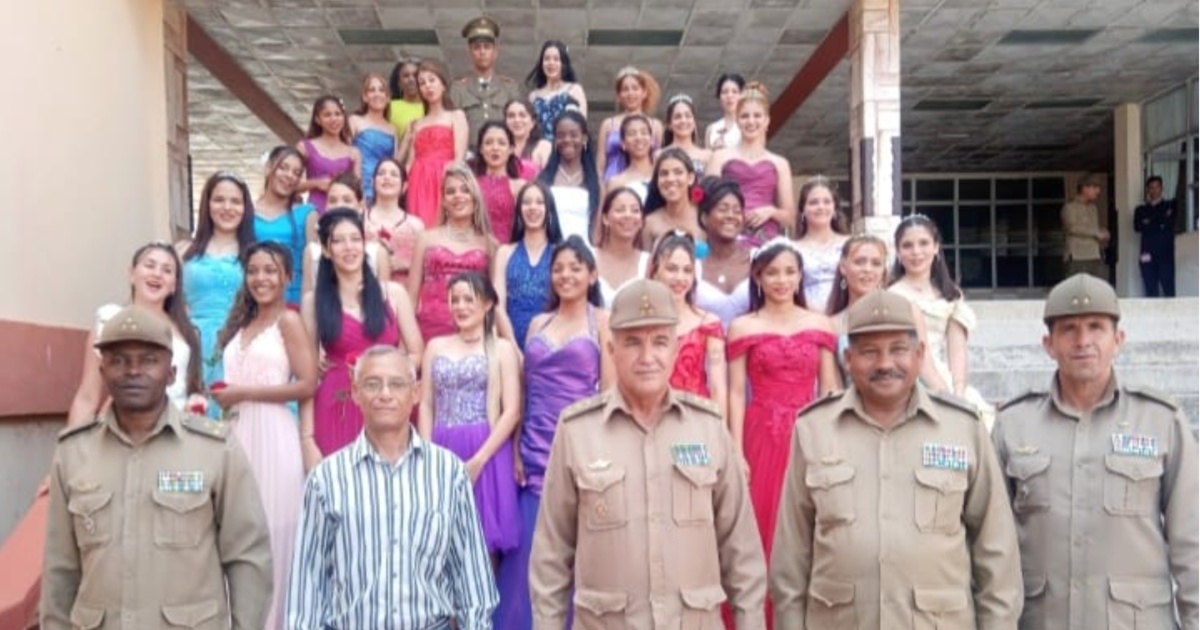The Camilo Cienfuegos Military School in Holguín has triumphantly announced the organization of its customary collective quinceañera celebrations, a tradition within these youth indoctrination schools. The Ministry of the Armed Forces (MINFAR) and the Eastern Army have both shared photos of the event that took place this past Friday at the military school.
MINFAR praised the event, calling it a "beautiful tradition" and highlighting that it was held in honor of the school's 57th anniversary. Meanwhile, the Eastern Army emphasized that this is a "lasting tradition" that is part of the "comprehensive training and care at the Camilo Cienfuegos Military Schools."
"Nothing compares to the joy of these young ladies sharing this significant date with family, teachers, and classmates," wrote the official profile alongside a photo featuring three of the quinceañeras. While turning 15 in Cuba is generally associated with family gatherings and friends, military schools transform these traditions into ideological events. The young girls are expected to pose and dance with military cadets, thus encroaching upon a personal milestone for Cuban girls.
This so-called "tradition" by military authorities is often used as a tool to humanize the young individuals who will eventually join the repressive arms of the Cuban regime. In late 2024, another group of young women celebrated their collective quinceañera at the Camilo Cienfuegos Military School in Contramaestre, Santiago de Cuba. These "coming-of-age" ceremonies at such institutions carry a significant ideological component.
Exploring Military School Traditions in Cuba
What is the significance of quinceañera celebrations at military schools in Cuba?
These celebrations are used as a means to instill ideological values in young students, transforming personal milestones into acts that align with the regime's objectives.
How do military schools in Cuba incorporate ideology into quinceañera celebrations?
The schools incorporate military elements into the celebrations, such as having the girls pose and dance with cadets, thus embedding political and ideological messages into the event.
Why do military authorities promote these celebrations as traditions?
The authorities promote these events as traditions to present a humanized image of military life and to create a sense of continuity and loyalty among future generations.
